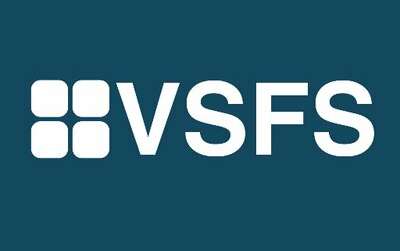
The State Department prepares for its first cohort of paid interns
If you want to help change the world, the State Department isn't a bad place to start. And if you want to get a foot into the door at the State Department, a pa...
Best listening experience is on Chrome, Firefox or Safari. Subscribe to Federal Drive’s daily audio interviews on Apple Podcasts or PodcastOne.
If you want to help change the world, the State Department isn’t a bad place to start. And if you want to get a foot into the door at the State Department, a paid internship isn’t a bad way to go. This fall, the State Department launches a new paid student internship program. Federal Drive with Tom Temin talked to director of recruitment in State’s bureau of global talent management, Mica Schweitzer-Bluhm, for all the details.
Interview transcript:
Micaela Schweitzer-Bluhm: Thanks so much for having me.
Tom Temin: It’s my pleasure.
Tom Temin: And this is the first time that the State Department internships have been paid, is that correct?
Micaela Schweitzer-Bluhm: That is correct. This is a new initiative that we’re able to do with new funding from Congress. It’s something we’ve been advocating for for a couple of years, our director general testified in Congress about it about 19 months ago. And we really have been advocating for this because it lifts barriers that have existed and prevented many, many students from pursuing internships with us. So we’re very excited that we now can pay people and open the door to a much wider range of students from all backgrounds and lift that barrier.
Tom Temin: And students of what age are eligible for this type of program?
Micaela Schweitzer-Bluhm: The students have to be U.S. citizens, they have to be at least 18 years old. They do need to be either enrolled in an undergraduate or graduate program and have at least 60 credit hours under their belt to apply.
Tom Temin: What are the range of internship assignments that will be available to them?
Micaela Schweitzer-Bluhm: Yeah, we take interns in all of our departments, and our headquarters in Washington, DC, at many of our field offices around the United States and at many of our embassies overseas. So it’s a really unique internship in that way. We take interns who are studying all majors, we at the State Department work on policy issues that range the gamut. So we really are looking for folks that have a wide variety of backgrounds. And we’re looking for folks that want to work with us on our specialist fields, diplomatic security maybe, or our information technology, or in our administrative bureau, working on our worldwide operation, it’s quite a challenge. So we’re really looking for students who are interested in a dynamic internship that’s going to expose them to the operation of the Department of State, and hopefully interest them in a future career with us.
Tom Temin: Well, it seems like the timing is good, because the State Department is in the news almost every day now with the conflict in the Ukraine and so forth. So state is pretty prominent, fair to say right now.
Micaela Schweitzer-Bluhm: We are quite busy, we do keep ourselves busy, and on behalf of the United States and the people of the United States, trying to advance our interests around the world, and to try and contribute to global prosperity and peace. And these are really great opportunities. Our interns can work on anything from, right now supply chain issues are a big issue, cybersecurity, a huge issue. International organizations, you know, the negotiations and the decisions in the U.N. So there’s such a wide variety of things that students can get experience in.
Tom Temin: But nobody will get the chance to throw a pie in Sergey Lavrov’s face, though, right?
Micaela Schweitzer-Bluhm: We don’t do that in the State Department, Tom!
Tom Temin: And how many internships will be open in the fall? And how are you promoting this program to the campuses?
Micaela Schweitzer-Bluhm: Yeah, we’ve put out announcements on all of our platforms, we put out a media notice we’ve been in touch with all of the campuses across the country that we work with, we’ve messaged all of the folks that have ever expressed interest in internships with us. So probably the message at this point has gotten to hundreds of thousands of people. We are planning to bring on up to 200 interns for the fall in this new paid internship program. And this is competitive, correct. It is competitive, the application is open right now. It’s open through April 12, or until we receive 1000 qualified applications. So we will be looking at 1000 applications and doing our part to select folks to work across the department in those 200 positions.
Tom Temin: We’re speaking with Mica Schweitzer-Bluhm. She’s director of recruitment in the bureau of global talent management at the State Department. And let’s look inside for a moment for those managers and bureaus and offices that get an intern. What is incumbent upon them to make sure that the intern doesn’t stand there and open mail for six months?
Micaela Schweitzer-Bluhm: Yeah, our trials, we do still get mail. No, our interns really are put into substantive positions. Our managers look at this as a really great opportunity to give people substantive exposure to the work that we do. So our managers know that they need to be giving the interns real work. Maybe they might be working on trying to help put together data analysis for something or maybe they might be working on putting together a program for the visit of the secretary to a particular country, or they might be working with our overseas bureau of buildings and building operations, looking at building a new embassy, what’s going on there? Are there security issues that we need to be worried about? Is the contractor on time, that kind of thing. So really substantive work. And the managers know that generally, our interns have incredible experiences really unique to the work that we do.
Tom Temin: And I imagine that for the managers that have an intern, it’s an opportunity for mentorship as well as just getting work out of somebody below the standard GS rates?
Micaela Schweitzer-Bluhm: Absolutely, despite the fact that we are in the news, as you pointed out, we do still tend to be a little bit of an unknown organization. And so we do view this as an opportunity to introduce people to the work that we do, and to expose them to careers in either the civil service or the foreign service and the paths that they might then choose. So managers definitely look at this as an opportunity to mentor and coach people and entice them into work with us in the future.
Tom Temin: And the State Department has had internship programs earlier, unpaid, through the years, any well known State Department figures that have come through internship?
Micaela Schweitzer-Bluhm: Yeah, we’ve had internship programs for decades, I think probably our most famous internship alum is Secretary Condoleezza Rice, who was an intern in our Bureau of Education and Cultural Affairs when she was a student. She remarked on this on her first day as Secretary of State and reminded everyone, “Be kind to your interns and give them a good experience, because you never know where they might come back.” So we really look at the potential for our interns as limitless.
Tom Temin: I can tell you after 45 years of professional work, that’s absolutely true. They do pop up again, in funny ways. And that was my question, there is the opportunity for permanent employment for the interns, maybe after they graduate or something, do they get a little head start for State Department employment, if they so choose?
Micaela Schweitzer-Bluhm: It’s not directly linked to employment. However, with the experience and the exposure to our operation, they certainly are well-positioned to understand the opportunities that exist, and to explain to us how their skills and experiences really do apply to the position that they may be applying to in a civil service or to the career that they’re applying to in the foreign service.
Tom Temin: And by the way, if an intern comes in for a specific function, say developing a data program or working in the operational end of a building, do they also get exposed to the other channels within state, if only by introduction? And here’s what we do over here?
Micaela Schweitzer-Bluhm: Yeah, absolutely. Our organization is a very interconnected organization, you can’t work in one part of the building and not know what everybody else in the building is doing or find yourself collaborating with people in other parts of the building and other bureaus. Or with our embassies overseas, or if you’re overseas with Washington. So our interns definitely get exposure to the whole of department operation and understand how it all fits together.
Tom Temin: And with 200 positions and knowing that these can be really productive, great people, I imagine within the State Department, there’s kind of a competition; “Hey, make sure I get one.”
Micaela Schweitzer-Bluhm: There is a lot of demands and interest in receiving an intern because it is a competitive process. And we are looking for talented individuals from all backgrounds, we’re really encouraging people who may not have considered an internship when it was unpaid, to consider it now. So looking for folks who maybe who are underrepresented in past internship programs to consider applying. But yes, our bureaus and our managers are very excited about getting interns.
Tom Temin: Mica Schweitzer-Bluhm is director of recruitment in the bureau of global talent management at the State Department. Thanks so much for joining me.
Micaela Schweitzer-Bluhm: Thank you, Tom for giving me this opportunity.
Copyright © 2024 Federal News Network. All rights reserved. This website is not intended for users located within the European Economic Area.
Tom Temin is host of the Federal Drive and has been providing insight on federal technology and management issues for more than 30 years.
Follow @tteminWFED
Related Stories





